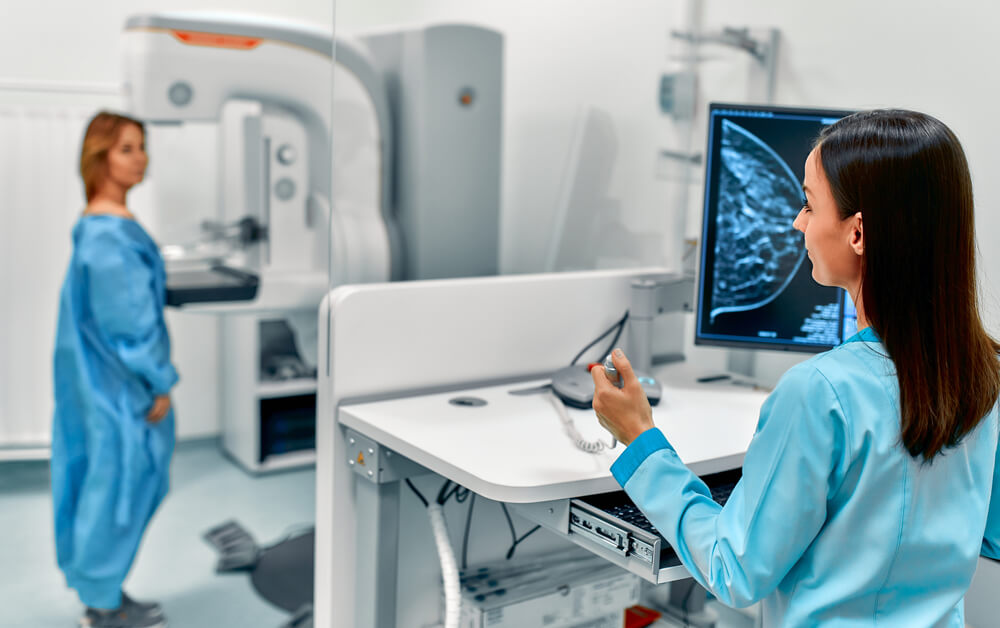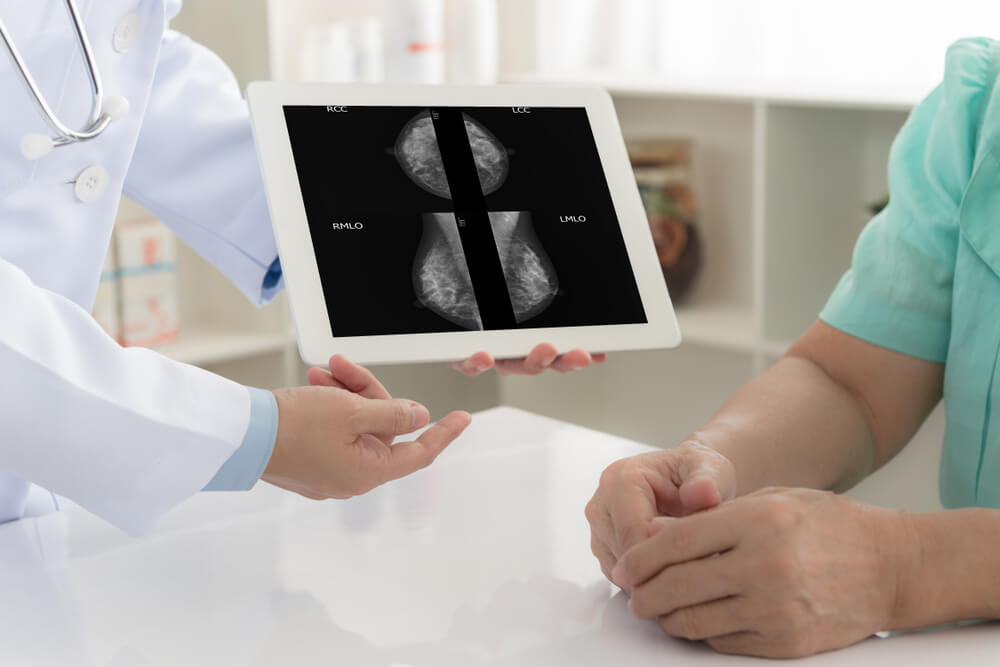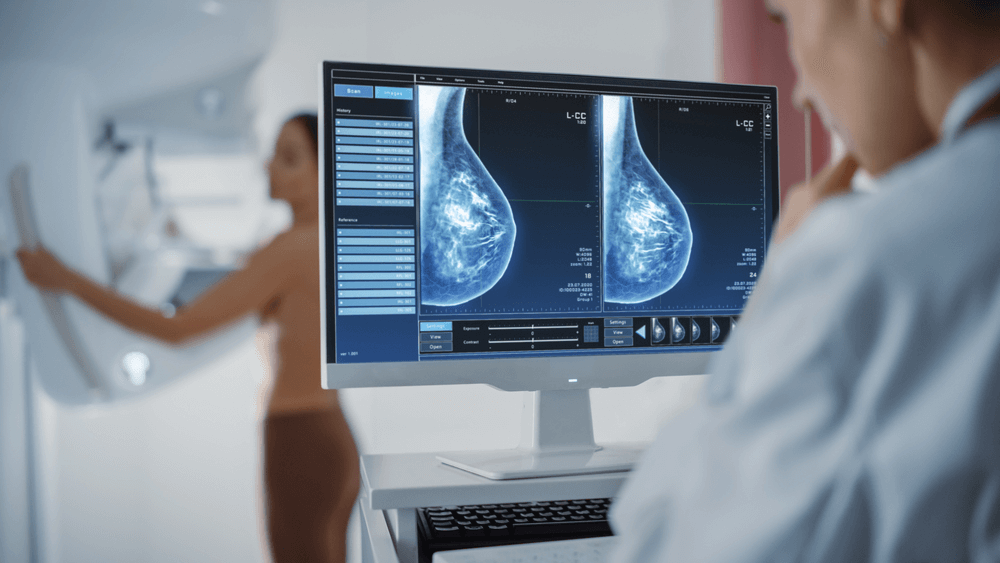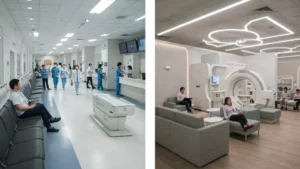Regular mammography scans can be crucial in detecting the early stages of breast cancer, potentially saving your life by providing essential information for effective treatment.
But how often should you undergo a mammogram, and when do you need a mammogram? This article covers the importance of mammography, expert recommendations when you should get a mammogram, and mammogram frequency based on your age group.
What is Mammography?
Mammography is a specialized medical imaging technique that uses low-dose x-rays to detect breast cancer in its early stages before symptoms, such as lumps, are visible or palpable.
By capturing images of the breast tissue, radiologists can analyze these images for abnormalities and identify cancerous growths known as tumors.
Mammograms are considered the gold standard for early breast cancer screening and can contribute significantly to reducing the number of deaths associated with the disease.

Mammography Frequency Based on Expert Recommendations
Experts’ opinions vary when it comes to recommending the ideal mammogram frequency. Major organizations, such as the American Cancer Society and the U.S. Preventive Services Task Force, have their guidelines on mammography frequency. Generally, these guidelines consider age, family history, and personal medical history.
Age-wise Breakdown for Mammogram Frequency
While there are varying guidelines, we’ve compiled mammogram frequency recommendations for different age groups to help you determine the best course of action for your breast health.
Age 40 to 49
For women aged 40 to 49, opinions differ regarding the frequency of mammogram. Some organizations recommend yearly mammograms starting at age 40, while others suggest discussing the benefits and risks with your healthcare provider to make an informed decision. Early mammogram screenings may benefit women with a family history of breast cancer or other risk factors.
Age 50 to 74
Most experts agree that women between 50 and 74 should have mammograms every one or two years based on their risk factors and previous mammography results. If you have a higher risk of breast cancer, annual mammograms may be more appropriate. It’s essential to discuss this with your healthcare provider to create a personalized screening plan.
Age 75 and older
For women aged 75 and older, the guidelines become less specific due to the need for more research on the benefits of mammography in this population. However, some experts advise continuing mammograms every one to two years if the woman is in reasonable health and can manage potential treatments should cancer be found. As always, consult with your healthcare provider to determine the best approach for your health situation.
Mammography Frequency for High-Risk Individuals
Some individuals may require mammograms more frequently due to being at a higher risk for developing breast cancer. Factors such as a family history of breast cancer, particularly in first-degree relatives (mother, sister, daughter), dramatically increase the risk.
Similarly, genetic mutations like BRCA1 or BRCA2 gene mutations can increase the susceptibility to breast cancer. People with such risk factors may be advised to start screenings earlier in life and proceed more frequently.
The Influence of Personal and Medical History on Mammogram Frequency
Your personal and medical history also plays a critical role in determining the frequency of your mammography screenings. For instance, if you’ve had a personal history of breast cancer or precancerous breast conditions, you may need more frequent mammograms.
Similarly, those who have been exposed to chest radiation treatment at a young age, particularly between ages 10 and 30, may have an increased risk of breast cancer. Therefore, understanding your personal history can significantly influence your mammogram schedule.

Comprehending and Interpreting Your Mammogram Results
After taking a mammogram, the results will be evaluated by a radiologist who will report any findings and their interpretation.
You may be called back for further testing or procedures like additional mammography views, ultrasound, biopsy, or an MRI if an abnormality is found. An abnormal mammogram does not always mean that you have breast cancer, and other tests are typically performed to confirm the diagnosis.
The Power of Early Detection
In conclusion, scheduling regular mammograms based on your age and risk factors is vital in early breast cancer detection. Understanding your personal and medical history can help you make informed decisions about your mammography frequency.
Interpreting your mammogram results correctly is also crucial in early detection and the successful treatment of breast cancer. Remember, an abnormal mammogram is a step towards understanding, not a confirmation of cancer.
For comprehensive and personalized mammogram screenings, consider One Step Diagnostic. We are committed to providing high-quality, patient-centered services, working diligently to detect breast cancer at the earliest stages.
Because we believe in the power of early detection, we offer the latest technology, experienced staff, and a patient-friendly environment for a seamless diagnostic experience. Make us your trusted partner on your journey towards optimal breast health.




